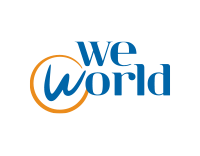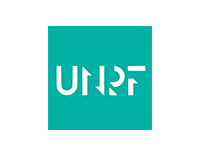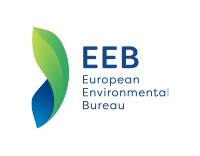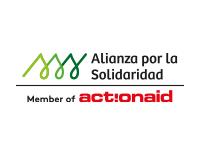Startseite

#CLIMATE
OFCHANGE
OFCHANGE
#CLIMATE
OFCHANGE
OFCHANGE
Klima bewegt
Unser wichtigstes Ziel ist, eine lebenswerte Zukunft für alle jungen Menschen weltweit zu schaffen. Sie sind die Generation, die am schlimmsten von den Auswirkungen der Klimakrise betroffen sein werden.
Wir möchten aber auch jene Menschen sichtbar machen, die aufgrund des Klimawandels oder Naturkatastrophen vor der Notwendigkeit stehen, ihr Zuhause zu verlassen.
Über die Kampagne
Die Stimmen der jungen Menschen weltweit stehen im Mittelpunkt unserer Kampagne!
Wir möchten das Bewusstsein für die Auswirkungen der Klimakrise schärfen, für eine wirksame Politik kämpfen und als ProtagonistInnen unserer eigenen Zukunft handeln.

#CLIMATE
OFCHANGE
#CLIMATE
OFCHANGE
Im Rampenlicht
Staatsmeisterschaften im Debattieren – Schüler*innen diskutieren Lösungen zur Klimakrise
News
#ClimateOfChange
Partnerorganisationen
Wir sind ein Konsortium bestehend aus 16 Partnern
aus 13 verschiedenen Ländern Europas, geleitet von WeWorld – GVC


FINEP
Deutschland
Das forum für internationale entwicklung + planung (finep) ist eine deutsche gemeinnützige Projekt- und Beratungsorganisation, die in der nachhaltigen Entwicklung mit den Schwerpunkten entwicklungspolitische Bildung, Umweltpolitik und Förderung lokaler Demokratie arbeitet. Neben der Durchführung eigener Projekte unterstützt und berät finep andere Non-Profit-Organisationen bei der Beschaffung von Drittmitteln, bietet Prozessberatung und -moderation sowie Unterstützung bei der Organisationsentwicklung an. Zudem führt finep Trainingsprogramme durch und erarbeitet Studien und Bildungskonzepte.


WeWorld
Italien
WeWorld ist eine unabhängige italienische Organisation, die in Italien und 28 weiteren Ländern tätig ist. Aufgabe unserer Organisation ist, die Rechte von Frauen, Kindern und lokalen Gemeinschaften durch Entwicklungszusammenarbeit und humanitäre Hilfsprogramme zu fördern und zu garantieren.
Unsere Bildungs- und Sensibilisierungsaktivitäten zu globalen Themen, die sich insbesondere an Schulen und Jugendliche richten, orientieren sich an den Prinzipien der Agenda 2030 für nachhaltige Entwicklung. Wir streben eine bessere Welt an, in der alle Menschen gleiche Chancen und Rechte, Zugang zu Ressourcen, zu Gesundheit, zu Bildung und zu menschenwürdiger Arbeit haben.
Wir wollen eine Welt, in der die Umwelt ein gemeinsames Gut ist, das es zu respektieren und zu erhalten gilt; in der Krieg, Gewalt und Ausbeutung geächtet sind. Eine Welt, in der niemand zurückgelassen wird.


University of Nicosia Research Foundation
Zypern
Die Mission der University of Nicosia Research Foundation (UNRF) ist es, Wissen, Innovation und Entwicklung durch Spitzenforschung zu inspirieren und zu fördern. UNRF bringt Erfahrungen aus ganz Zypern, der Region und der Europäischen Union in einer Vielzahl von Bereichen zusammen. Die Forschung an der UNRF konzentriert sich auf globale und lokale Themen wie Gesundheit, komplexe Netzwerke, Sozialwissenschaften, Bildung, ICT und ökologische Nachhaltigkeit. Forscher*innen an der UNRF sind daran interessiert, die Herausforderungen des modernen Lebens aus einer Vielzahl von Perspektiven zu untersuchen, einschließlich der technologischen und wissenschaftlichen Fortschritte, der modernen Kultur und des Denkens. Sie wenden ihre Expertise, die sie bei der Behandlung lokaler, regionaler und nationaler Themen erworben haben, auf globale Herausforderungen an und entwickeln interdisziplinäre Teams, um wichtige Themen mit europäischen und globalen Auswirkungen anzugehen.
Die Forscher*innen der UNRF verfügen über umfangreiche Erfahrungen im Management und in der Durchführung von nationalen und europäisch finanzierten Projekten. Derzeit sind unter der UNRF die folgenden spezialisierten Zentren geschaffen worden:
- Zentrum für Wissensmanagement-Forschung (CKMR)
- Zentrum für Wirtschaftsstudien (CES)
- Zentrum für Green Develoopment (CGD)
- Mittelmeerzentrum für Krebsforschung (MCCR)
- Medizinisches Forschungsinstitut (MRI)
- Forschungszentrum für Sozialarbeit und Sozialpolitik (RCSW)
- Forschungszentrum für Tourismus und Transport (TTRC)
Die UNRF hat verschiedene Sozialforschungsaktivitäten mit unterschiedlichen sozialen und ausgegrenzten Gruppen durchgeführt und erfolgreich abgeschlossen. Darüber hinaus hat UNRF mehrere Projekte verwaltet, an denen Partner aus verschiedenen Ländern teilgenommen haben. Das Ziel war, die beruflichen Fähigkeiten mit Hilfe von Online-Tools zu verbessern. UNRF hat auch Erfahrung mit dem EQF Learning Outcomes Approach, dem Outreach-Ansatz mit sozial ausgegrenzten Gruppen und der Wissenskapazität, die sich aus der direkten Verbindung des Zentrums mit der Universität von Nikosia ergibt.


University of Bologna
Italien
Die Universität von Bologna (Unibo), gegründet im Jahr 1088, ist die älteste Universität in Westeuropa. Sie bleibt auch heute noch eine der wichtigsten Institutionen der höheren Bildung in ganz Europa. Die Universität Bologna unterstützt nachdrücklich die Forschungs- und Bildungsaktivitäten interdisziplinärer Forschungsgruppen, die sich mit kulturellem Erbe (materiell und immateriell) und integrierter Entwicklung und Migration beschäftigen.


Südwind
Österreich
Südwind setzt sich weltweit für nachhaltige globale Entwicklung, Menschenrechte und menschenwürdige Arbeitsbedingungen ein. Durch Kampagnen, schulische und außerschulische Bildungsarbeit und die Herausgabe des Südwind-Magazins schärft die entwicklungspolitische Nichtregierungsorganisation das Bewusstsein für globale Zusammenhänge und deren Auswirkungen. Die Organisation führt Projekte auf lokaler, regionaler, nationaler und internationaler Ebene durch. Südwind setzt sich seit 1979 für eine gerechtere und friedlichere Welt ein. www.suedwind.at


Slovenian Global Action
Slowenien
SLOGA ist eine Plattform von Nichtregierungsorganisationen (NGO), die im Bereich der internationalen Entwicklungszusammenarbeit, der globalen Bildung und der humanitären Hilfe arbeiten. Das Ziel der Plattform ist es, die Partnerschaften zwischen slowenischen NGOs zu stärken, die das Bewusstsein der slowenischen und europäischen Öffentlichkeit über die ungleiche Verteilung des globalen Reichtums und die daraus folgende Bedeutung der globalen Solidarität und Abhängigkeit zu erhöhen.
Die Hauptaufgabe von SLOGA ist es, die Gestaltung, Umsetzung und Bewertung der slowenischen und europäischen Politik der internationalen Entwicklungszusammenarbeit zu überwachen und aktiv mitzuarbeiten. Das Ziel ist, sich für sozialen Ausgleich und Verantwortung, Achtung der Menschenrechte, Chancengleichheit, Bildung, Solidarität, nachhaltige Entwicklung sowie einer stärkeren Integration gefährdeter sozialer Gruppen in die Entscheidungsprozesse im Rahmen der Entwicklungszusammenarbeit einzusetzen. So arbeitet SLOGA aktiv mit politischen Entscheidungsträger*innen und Vertreter*innen der slowenischen Medien zusammen.
SLOGA organisiert Bildungs- und Trainingsaktivitäten für Entwicklungs-NGOs, informiert relevante Stakeholder*innen wöchentlich über aktuelle Themen auf nationaler, europäischer und globaler Ebene, vernetzt NGOs in den Konsortialpartnerschaften für gemeinsame Bewerbungen bei europäischen und nationalen Ausschreibungen und ermutigt alle interessierten Stakeholder*innen zur Mitarbeit in den Arbeitsgruppen von SLOGA.


OXFAM
Deutschland
Oxfam Deutschland ist eine unabhängige Entwicklungs- und Hilfsorganisation, die sich für eine gerechte Welt ohne Armut einsetzt. Oxfam leistet humanitäre Hilfe in Krisen, stärkt lokale Gruppen, die sich für soziale Gerechtigkeit einsetzen, legt die zugrunde liegenden Strukturen der Armut offen und setzt sich dafür ein, dass Entscheidungsträger*innen in Politik und Wirtschaft verantwortungsvoll handeln. Oxfam ist ein internationaler Zusammenschluss von 19 Organisationen, die sich in mehr als 90 Ländern als Teil einer globalen Bewegung für Veränderung vernetzen, um eine Zukunft frei von der Ungerechtigkeit der Armut zu schaffen. Gemeinsam können wir auf 70 Jahre Erfahrung in der humanitären und entwicklungspolitischen Arbeit zurückgreifen. Die entwicklungspolitische Arbeit von Oxfam Deutschland basiert auf drei Säulen: Projekten, Advocacy-Arbeit und Kampagnen, sowie Marketing und Kommunikation. Weitere Informationen über uns und unsere Arbeit finden Sie hier: www.oxfam.de


City of Bologna
Italien
Die Stadt Bologna ist die siebtgrößte Stadt Italiens mit ca. 400.000 Einwohnern. Sie liegt an sechster Stelle in der wirtschaftlichen Bedeutung, wobei sie sich durch spezielle Industriecluster auszeichnet, wie z. B. automatische Maschinen, Automobilindustrie, Elektronik, Mode und Agrar- und Lebensmittelsektor. Bologna wurde am 1. Januar 2015 offiziell von der italienischen Regierung zur Metropolregion ernannt. Die Stadt steht nun an der Spitze der Metropolregion, die 55 Gemeinden mit einer Gesamtbevölkerung von etwa einer Million Einwohner*innen umfasst.
Die Stadt ist außerdem Hauptstadt der Region Emilia Romagna. Bologna ist eine der kulturell lebendigsten Städte Italiens und mit mehr als 40 Museen eine Stadt der Kunst mit einer sehr hohen Beteiligung an Kultur- und Freizeitaktivitäten. Die Stadtverwaltung ist Mitglied mehrerer EU-Städtenetzwerke, darunter Eurocities, European Coalition of Cities against Racism (ECCAR), Unesco Network of Creative Cities, und hat eine langjährige Erfahrung in der Teilnahme an internationalen Projekten, auch im Bereich der Entwicklung, Migration und Menschenrechte.twork of Creative Cities, and has a longstanding experience in participating to international projects, also in the field of development, migrations and human rights. Offizielle Website der Stadt Bologna: www.comune.bologna.it


Instituto Marquês de Valle Flôr
Portugal
IMVF ist eine portugiesische Stiftung für Entwicklung und Zusammenarbeit, die ihre Tätigkeit als NGDO vor mehr als 30 Jahren begann. Wir fördern die Menschenwürde, die gleiche Rechte, Chancen und Gerechtigkeit für alle umfasst. Wir verbessern das Wohlergehen der am meisten gefährdeten Bevölkerungsgruppen, indem wir soziale Ausgrenzung bekämpfen. Wir leisten einen Beitrag zu einem nachhaltigeren Planeten, mit Blick auf die Lebensbedingungen zukünftiger Generationen. Wir arbeiten partnerschaftlich, um die besten Praktiken zu gewährleisten und Gemeinden, öffentliche Einrichtungen und die Zivilgesellschaft zu stärken. Wir halten uns an die Werte und Prinzipien von Solidarität, Gleichberechtigung, Nachhaltigkeit, sozialer Gerechtigkeit, Genauigkeit und Transparenz.


Hungarian Baptist Aid
Ungarn
Hungarian Baptist Aid ist eine humanitäre Organisation, die bedürftigen, gefährdeten und sozial ausgegrenzten Menschen Hilfe, Entlastung, Entwicklung und geistliche Unterstützung bietet, um ihre Situation zu erleichtern. Sie möchte Chancen für ein menschlicheres Leben eröffnen, unabhängig von der Nationalität, Rasse, Religion, politischen oder sozialen Zugehörigkeit der Begünstigten. HBAid ist spezialisiert auf die Unterstützung von körperlich Behinderten, Flüchtlingen, Obdachlosen, Drogenabhängigen und Opfern von Menschenhandel und Naturkatastrophen. Seit der Gründung im Jahr 1996 hat HBAid in mehr als 60 Ländern gearbeitet und ist zu einer der größten professionellen Hilfs- und Entwicklungsorganisationen Ungarns geworden. HBAid hat 200 Vollzeitmitarbeiter*innen in der Zentrale, weitere 3000 Vollzeitmitarbeiter*innen in verschiedenen Sozial- und Bildungseinrichtungen und Tausende von Freiwilligen. Mehr beiwww.hbaid.org.


European Environmental Bureau
Belgien
Das EEB ist das größte europäische Netzwerk von Umwelt-Bürger*innenorganisationen. Wir bringen über 160 zivilgesellschaftliche Organisationen aus mehr als 35 europäischen Ländern zusammen. Wir stehen für nachhaltige Entwicklung, Umweltgerechtigkeit & partizipative Demokratie.


Buy Responsibly Foundation
Polen
Die Buy Responsibly Foundation ist eine bundesweite Organisation, die sich mit nachhaltiger Entwicklung und Umweltschutz, verantwortungsbewusstem Konsum und Produktion sowie der Einhaltung von Menschenrechten und Umweltprinzipien in der Wirtschaft beschäftigt. BRF versucht aufzuzeigen, wer unter welchen Bedingungen die Waren produziert, die täglich gekauft werden. Die Organisation untersucht, ob deren Produktion negative Auswirkungen auf Menschen, Tiere und die Umwelt hat und sucht nach ethischen und ökologischen Alternativen. BRF führt Informations- und Bildungsprojekte durch, arbeitet mit Lehrer*innen und Nichtregierungsorganisationen zusammen und interagiert mit Unternehmen und Regierungs- und Verwaltungsapparaten.
Webseite: https://www.ekonsument.pl


BEPF
Bulgarien
BEPF wurde 2003 als bulgarisches Mitglied der Environmental Partnership Association gegründet, die sechs NGOs aus Zentral- und Osteuropa zusammenbringt.
Sie arbeiten an der öffentlichen Bewusstseinsbildung zu Umweltfragen und der Förderung der aktiven Bürger*innenbeteiligung für eine nachhaltige Entwicklung. Die Ziele sind transparente und gute Regierungspraktiken, aktive Gemeinschaften und nachhaltige Lebensstile.
BEPF-Schwerpunktbereiche sind:
- Klimawandel;
- Bürger*innenbeteiligung;
- Förderung des ehrenamtlichen Engagements;
- Lobbyarbeit für verantwortungsvolle Politik;
- Bewusstseinsbildung und Erhaltung von Arten und Lebensräumen.
BEPF ist Mitglied der “For the Nature Coalition” von Naturschutz-NGOs und zivilgesellschaftlichen Gruppen sowie der “Climate Coalition”.


Alianza
Spanien
Wir sind eine Nichtregierungsorganisation aus Spanien. Seit über 30 Jahren kämpfen wir für Frauen, Migrant*innen und Umweltrechte und helfen dabei, die Situation von Tausenden von Menschen auf der ganzen Welt zu verbessern. Wir wissen, dass es informierte und kritische Antriebskräfte braucht, um notwendigen soziale Veränderungen zu bewirken und eine Welt zu schaffen, die den Menschen und die Menschenrechte in den Mittelpunkt stellt. Wir wissen, dass Lobbyarbeit der Schlüssel ist, um dies zu erreichen. Seit September 2018 sind wir Mitglied im internationalen Verband von Action Aid und decken damit über 50 Länder ab. Wir befinden uns gerade in einem Transformationsprozess und wollen die Welt verändern.


European Association for Local Democracy
Frankreich
ALDA wurde 1999 auf Initiative des Europarats gegründet, um das Netzwerk der Local Democracy Agencies zu koordinieren und zu unterstützen. Dabei handelt es sich um selbsttragende, lokal registrierte NGOs, die als Förderer von Good Governance und lokaler Selbstverwaltung agieren.
ALDA ist eine mitgliederbasierte Organisation, die über 300 Mitglieder aus mehr als 40 Ländern in Europa und seiner Nachbarschaft vereint. ALDA fördert eine aktive europäische Bürger*innenschaft, in enger Zusammenarbeit mit lokalen Behörden, zivilgesellschaftlichen Netzwerken und europäischen Institutionen.
Die Aktivitäten von ALDA tragen dazu bei, das Verständnis und Zugehörigkeitsgefühl der Bürger*innen der Europäischen Union zu erhöhen und den interkulturellen Dialog und die Bürger*innen beteiligung zu fördern. Durch die Durchführung eigener Projekte und der Projekte ihrer Mitglieder sowie durch Lobbying-Aktivitäten fördert ALDA die Bürger*innenbeteiligung und die lokale Demokratie auf vier Hauptsäulen:
- Bürger*innenschaft, Kultur, Bildung und Freiwilligenarbeit;
- soziale Fragen;
- Jugendförderung und Beschäftigung;
- Gesundheit und Umwelt.


ActionAid Hellas
Griechenland
ActionAid ist eine unabhängige, internationale Organisation, die sich seit 1972 für eine Welt frei von Armut und Ungerechtigkeit einsetzt – mit über 15 Millionen Menschen in 45 Ländern.
Durch Bildung, kollektives Handeln und Solidarität bringt ActionAid echte Veränderungen in das Leben der am meisten marginalisierten Menschen. Die Organisation unterstützt sie dabei, sich aus eigener Kraft für ein Leben in Würde einzusetzen. ActionAid hilft lokalen Gemeinschaften dabei, ihre Regierungen zur Rechenschaft zu ziehen, und schließt sich mit lokalen Organisationen zusammen, um sich gegen Politiken und Praktiken einzusetzen, die Armut und soziale Ungerechtigkeit aufrechterhalten.









